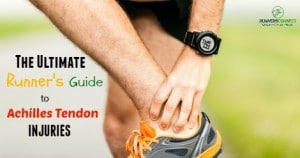A shortness of breath, a wheezing sound in your throat, or a tightness in your chest after you run—these are the classic signs of exercise-induced asthma, an inflammation of your airways which limits your ability to breathe and can put a serious damper on your athletic performance.
While asthma rates have been rising in society as a whole over the past several decades, asthma is also unusually common in runners and other endurance athletes. This week, we’ll take a look at some research on why that might be.
Statistics for asthma in runners
First, we’ll look at a few surveys of athletes to gauge the incidence of asthma in runners.
Ilkka Helenius and colleagues at a medical center in Finland investigated the presence of asthma in a range of athletes, including speed and power sport participants, long-distance runners, swimmers, and a control group of nonathletes. Helenius et al. found that asthma was present in 23% of the athletes but only 4% of the control subjects, based on a medical evaluation and history. Among the athletes, asthma was present significantly more often in the swimmers and the runners when compared to the power and speed athletes, perhaps because of their prolonged high rates of breathing. A separate study found that fully 78% of a sample of elite cross country skiers had asthma, as well.
In a letter to the British Medical Journal, Ilkka Helenius and Heikki Tikkanen, one of the coauthors of the first paper, detail a larger follow-up study which examined 103 elite Finnish runners, finding that, while 16% had been previously diagnosed with asthma, another 14% had chronic symptoms consistent with exercise induced asthma. Further, several more athletes displayed some of the tell-tale signs of exercise-induced asthma after indoor training or outdoor running in cold weather, meaning that a total of 52% of these runners had some evidence of asthma problems!
Both studies by Helenius’ group also found a strong correlation between allergies (as measured by a skin-prick test) and asthma.
Some 58% of runners with allergies were found to have symptoms of exercise-induced asthma, compared to only 37% of those who did not have allergies.
Helenius et al. hypothesize that the high ventilation rates during exercise expose endurance athletes to factors like cold weather, pollen, and poor air quality that can agitate the airways. Swimmers might also be taking in some of the chemical fumes that evaporate off the surface of the pool water. Pollen exposure can occur in the spring and fall, when pollen levels in the air are greater, but exposure to other allergens, like dust, can be worse indoors.
Asthma and lung power in runners
The hypotheses were tested in another experiment by Helenius et al., published in 1998.
A group of 58 elite runners had their lung power tested (by means of Forced Expiratory Volume or FEV, a standard test of airway restriction, which measures how much air you can exhale in one second) both before and after a series of 2000m time trials conducted over several weeks in the late winter and early spring. Exercise-induced asthma was defined as a decrease of at least 10% in the FEV following the time trial. Skin prick tests were also conducted to measure the sensitivity of the runners to allergens.
After the lung power testing, 9% of the subjects were judged to have asthma (an FEV decrease of 10% or more), while another 26% had “probable” exercises-induced asthma, a decrease of 6.5% or more in FEV.
Among these runners with probable and definite cases of exercise-induced asthma, some were sensitive to the cold (having worse FEV measurements after the cold-weather time trials in February) while others were sensitive to pollen (having poor FEV after the spring time trials when the pollen count was high). A few were sensitive to both!
Takeaways for runners
Some of these findings will be helpful to runners who already know they have asthma:
- Be aware that your condition can be made worse by cold air during the winter or pollen during the spring, so planning long and strenuous workouts during slightly warmer times during the winter and on days with a lower pollen count in the spring might be helpful.
- Indoor air quality can have an effect on your workout, as well if you do any treadmill training or indoor track workouts.
But the biggest take-away from these studies is that a large number of runners probably have exercise-induced asthma without even knowing it!
If you have been experiencing the following symptoms:
- occasional chest tightness
- shortness of breath
- wheezing following exercise, especially indoors, in the winter, or in the spring,
You should see your doctor and get tested for exercise-induced asthma. Keep in mind that your risk is almost doubled if you know you’ve got allergies to pollen or dust, and if you are a high-level athlete doing high volume and high intensity training, your risk is probably greater as well.









2 Responses
Thanks for this article. I’ve had exercise induced asthma for years but didn’t discover it until I told someone I had really bad tightness in my chest. I always thought asthma was just wheezing and did not really chest tightness is also a symptom of asthma.
Good article,
I suffer from allergies and have never considered that I could also have asthma when running outside in the winter.